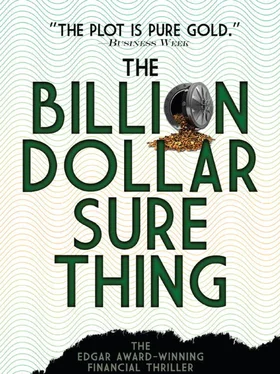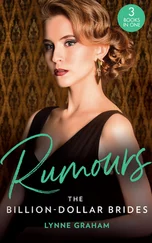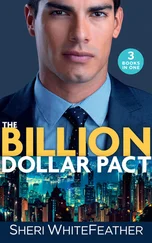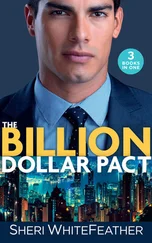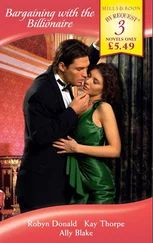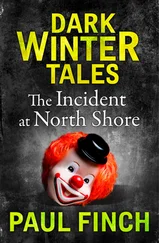Melekov picked up the phone and called the head of the National Bank. “Roskin. Melekov here. What do you think?”
“By God, I think you’ve done it. I always knew you were a smart son of a bitch, but this is really something. You’ve heard about the meeting.”
“Right. At your place,” Melekov answered.
“Yes, but that’s not what I mean. Both Litnovich and Slavic from the Central Committee will be there. I got a call very late last night asking me to make the arrangements. My friend, we’ve shaken them right to the top. How’s our position look?”
“I just checked. We’re just a bit over $3 billion short. At the closing quotes in New York we’re already about $100 million ahead, Lofkin tells me. And we picked up 5 million ounces of gold at an average price of $78 an ounce in Zurich.”
Roskin appeared to hardly know quite what to say. Then he proceeded. “Melekov, have you given some thought as to where we go from here?”
“Well, I think we have made an excellent beginning in the markets. Now must come the massive follow-through. With all we’ve got. It must be quick and perfectly coordinated.”
Roskin, who was a good solid banker of the old school, had known for years that he had never been in the same class as his younger colleague at the Bank for Foreign Trade. But he was cunning enough to know a good ally. A man with a future. So he had decided to establish a relationship over the head of Melekov’s boss, or behind his back, depending upon the point of view. With Melekov as the brain, the chief theoretician, Roskin had no doubt that the two of them would end up jointly controlling the Soviet financial system. This coup would put the seal on it. When Melekov had approached him a couple of weeks ago with the plan, Roskin had at first been shocked. The daring of it, the risk involved—all went against his banker’s grain. Because there was no precedent.
Russia had always been ultraconservative in the area of international monetary affairs. To be sure, this stood in great contrast to the country’s aggressive use of its economic power in other ways. High Aswan dam, the Cuban sugar arrangements, the gas and oil contracts with Iran and especially Iraq, those loans to Indonesia, the support of Chile, and of Indira Gandhi in India. And most important of all, the silent war of attrition on the economic stability of the United States through the eternal prolongment of the Vietnam conflict, a project that had been successful beyond belief. But it had taken a Melekov to realize that now was the time to take advantage of the weakened position of the United States through a spectacular attack on its soft underbelly—the international position of the dollar. Roskin had seen Melekov’s point immediately, and when Melekov had demonstrated a completely atypical cocksureness on timing, he had decided to back the man. The results thus far had confirmed his confidence. But—
“Roskin, are you still there?” asked Melekov.
“Yes, I was just thinking,” replied Roskin. Then he continued. “How do you propose to present all this at the meeting?”
Melekov answered: “The key is that the world must witness the annihilation of the dollar. Not an orderly retreat, not a negotiated adjustment, but a total route. This must be seen as the inevitable result of the policy of American dollar imperialism—the revolt of its captives all around the world. The next step must be to propose a replacement immediately, a non-imperialistic instrument of commerce. Yet one which can gain immediate international trust. My proposal is a gold-based ruble. As simple as that. Initially, we will have to control its use down to the last gold kopeck. Expand the ruble area slowly, so that we don’t run into the same kinds of problems that first the British with their sterling zone, and then the French with the franc zone, and finally the Americans with their global dollar inevitably faced. We don’t want to be the bankers for the world, Roskin. Only for a good part of it. But we cannot fail. As surely as the dollar replaced sterling in country after country in the world after World War II, the gold ruble can start displacing the dollar. There’s an old saying about a banker’s biggest capital being the trust people put in him. The United States was, until this week, the supreme banker of the world. This can now be changed.”
Roskin listened most carefully to all this. And he again could not help but agree. He said, “Tell me, Melekov, do you propose to put these ideas on the table right at the outset of the meeting this morning?”
Melekov replied, “Of course. When you say a , you must also say b . We must now attack. With all the economic weapons at our disposal. And for all the world to witness!”
“Stepanov and his friends in the Central Committee might not buy it, you know.”
“We’ll see. Roskin, I’ve got to clean up just a few things here. See you in about fifteen minutes.”
Melekov carefully gathered his documentation in preparation for the meeting and, after packing his briefcase, leaned back to finish his cup of coffee. After telling his secretary to expect him back around noon, he descended the stairs.
The porter at the exit indicated that a car was waiting for him. Melekov had not ordered one but stepped in anyway. It was too late to search for a taxi.
The National Bank of the Soviet Union was housed in a much more impressive structure than its sister institution. After all, this was the home of the ruble. Marble stairways. And even an elevator. Melekov did not bother to announce himself to the inevitable crew of watchdogs at the entrance. They knew him. He took the elevator to the third floor and strode down the corridor to the very large conference room at the end. He had expected many of the executives from both of the banks to be there but found that the only man awaiting him was his friend Roskin.
“Am I too early or something?” he immediately asked.
“No,” replied Roskin. “It’s scheduled for nine. Maybe I should take a look where everybody’s hiding.”
But as he entered the corridor, it was only to see a group of men heading in his direction.
“Here they come.”
To be more exact, three men entered the conference room. Ivan Litnovich, the man who had moved into the Central Committee only a few years ago and who had almost immediately pulled all the strings of the Soviet financial world right into his own lap. If the Soviet Union had ever had a financial czar, it was Litnovich. He was followed by Slavic, one of the oldest hacks on the committee. He had survived three leadership changes in the Kremlin and was known for his cunning and primitiveness. And finally, Melekov’s boss—Stepanov, a Soviet functionary of the standard type. All three really had only one thing in common, thought Melekov fleetingly as they entered the room: All were Georgians.
Litnovich immediately took the chair at the head of the table and indicated to Stepanov that he should close the door. There was a peculiar absence of the usual handshakes.
Litnovich spoke.
“Comrades, let’s get right down to the business at hand.”
Roskin immediately interrupted.
“Don’t you think we should wait for the others to arrive?”
“No,” replied the man from the Central Committee. “They have been advised to stay at their desks. For the time being, we have everybody here that is necessary.”
Roskin glanced very briefly at Melekov.
“Comrade Melekov, the chairman of the Foreign Trade Bank of the Soviet Union has informed us in the Central Committee that you have wildly embarked on a radically new program, without his knowledge and approval. That you have exceeded your competence limits in a completely unprecedented fashion and have endangered the international financial position of the Soviet Union. I expect an explanation.”
Читать дальше
